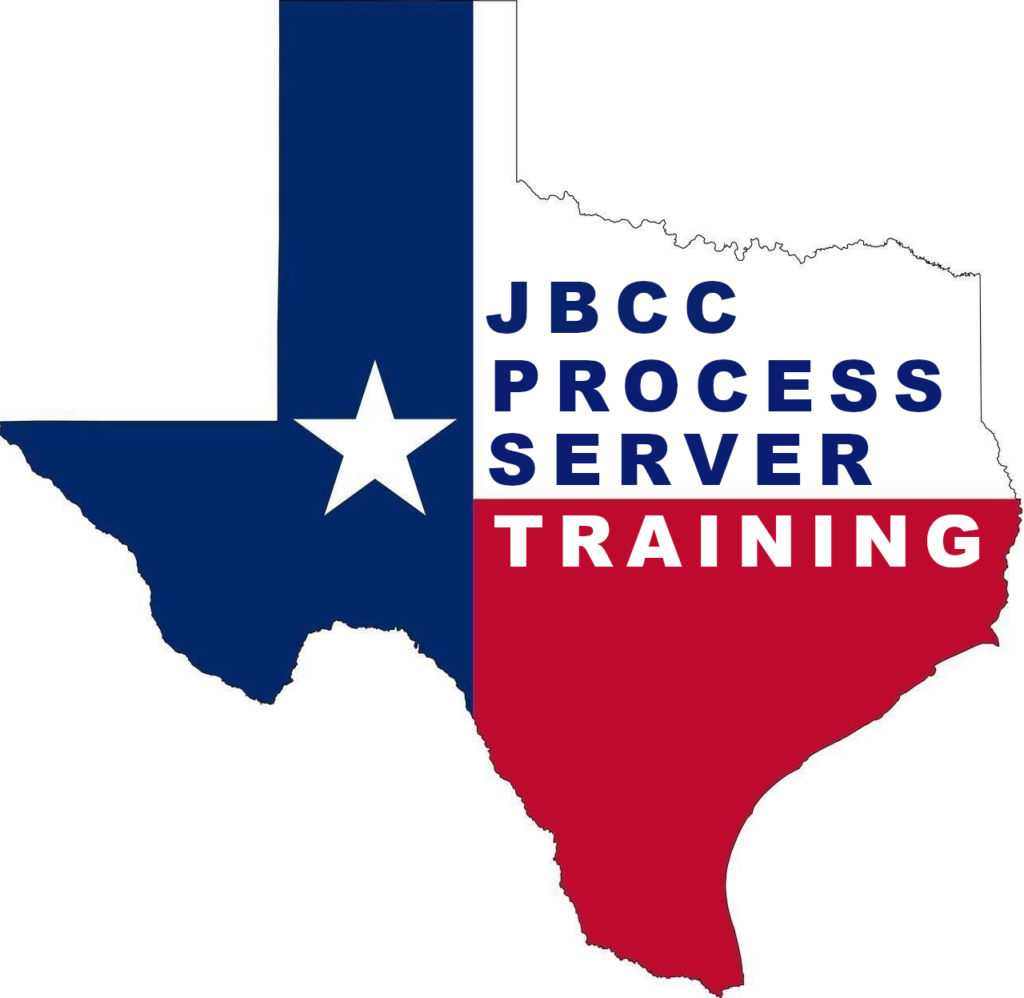

This Code of Conduct applies to all Process Servers certified by the Judicial Branch Certification Commission pursuant to order of the Supreme Court of Texas. A violation of this Code of Conduct may subject a Process Server to discipline by the Judicial Branch Certification Commission, but a violation does not give rise to a claim that service of process was defective. In this Code, certified process servers are referred to as “Process Server,” and the Judicial Branch Certification Commission is referred to as “JBCC.”
A Process Server is a key part of the Texas Judicial System. Serving as a Process Server is a privilege, and professionalism is required.
A Process Server must treat everyone with respect.
(a) A Process Server must provide an accurate return of service or report of service as to all documents served.
(b) A Process Server must not sign, submit, or file any document that is false or misleading.
(c) A Process Server must be candid and truthful concerning all process service matters.
(d) A Process Server must not falsely swear or commit perjury in any communication to the JBCC or any federal or state regulatory or licensing authority or court.
A Process Server must not serve process in a suit in which the Process Server:
(a) has an interest in the outcome of the suit; or
(b) is a party or is employed by a party or a party’s attorney.
A Process Server must not serve process in a suit in which the process server’s participation would cause a distinct appearance of impropriety.
A Process Server must not exaggerate his authority or his position or affiliation with a court, agency, or office.
A Process Server in law enforcement, while serving process in a private capacity, must not attempt to serve a document while wearing a law enforcement officer’s uniform or a uniform that resembles a law enforcement uniform. A Process Server must not display a law enforcement badge or a badge that resembles a law enforcement badge. A Process Server may display certification issued by the JBCC.
A Process Server must, at all times, provide the JBCC with the Process Server’s current name, business name, business address, home address, business and home telephone numbers, email address, and fax number, and must notify the JBCC of any change in contact information within 30 days of the change.
A Process Server must promptly respond to all inquiries from the JBCC and all inquiries from parties and clients within the time prescribed in the request.
A Process Server must cooperate fully with the investigation of a complaint filed with the JBCC and provide information as
requested. A Process Server must, upon request, provide contact information on how to file Process Server complaints with the JBCC. The information provided must include the address, telephone number, and website address of the JBCC.
A Process Server must report to the JBCC in writing any violation of this Code by another Process Server. A Process Server must not file a false or baseless complaint with the JBCC.
A Process Server must comply with the continuing education requirements adopted by the JBCC and approved by the Supreme Court of Texas.
(a) A regulated person who, after being certified, registered, or licensed, is convicted of any felony or misdemeanor offense must immediately notify the Commission of the conviction.
(b) A Process Server must immediately make a written report to the JBCC if any of the following occur:
(1) any disciplinary action against the Process Server, including, but not limited to, revocation or suspension of a license or registration;
(2) refusal by another authority to grant or renew a license, registration, or other authorization to deliver process or provide process service in another jurisdiction; or
(3) being held in contempt by a state or federal court.
(c) As used in this Code, a conviction includes the initial plea, verdict, or finding of guilt, plea of no contest, or pronouncement of sentence by a trial court even though that conviction may not be final or sentence may not be actually imposed until all appeals are exhausted.
(a) A Process Server must not violate this Code or knowingly assist or induce another to do so.
(b) A Process Server must not falsely represent that he or she possesses any certificate, degree, or title.
(c) A Process Server must not commit any criminal act.
(d) A Process Server must not violate any law of the State of Texas, another state, or of the United States relating to the conduct of a Process Server.
(e) A Process Server must not engage in conduct involving dishonesty, fraud, deceit, misrepresentation, or obstruction of justice.
(f) In connection with any felony or any crime involving fraud or dishonesty or other conduct involving moral turpitude, a Process Server may be considered to have engaged in misconduct upon a final conviction, the imposition of community supervision, or the imposition of deferred adjudication.
(g) A Process Server is considered to have engaged in misconduct if the judge of any court makes a finding in connection with a case in that judge’s court that the Process Server knowingly filed a false return.
(h) A Process Server must not violate any rule promulgated by the Supreme Court of Texas relating to the conduct of a Process Server.
(i) A Process Server must not violate a final order of any state or federal court unless the order has been lawfully stayed.
(j) A Process Server who has been held in contempt by a state or federal court is subject to review and disciplinary action by the JBCC.
(k) A Process Server must not cause or be party to, directly or indirectly, a breach in the security of the private process server examination in any private process server course.
(I) A Process Server must not serve process when the Process Server’s certification has expired or when the Process Server’s authorization to serve process has been suspended or revoked.
(m) A Process Server must not employ or engage to serve process a Process Server whose certification has expired or when the Process Server’s authorization to serve process has been suspended or revoked.
Misc. Docket No. 16-9034
Lorem ipsum dolor sit amet, consectetur adipiscing elit. Ut elit tellus, luctus nec ullamcorper mattis, pulvinar dapibus leo.
Click edit button to change this text. Lorem ipsum dolor sit amet, consectetur adipiscing elit